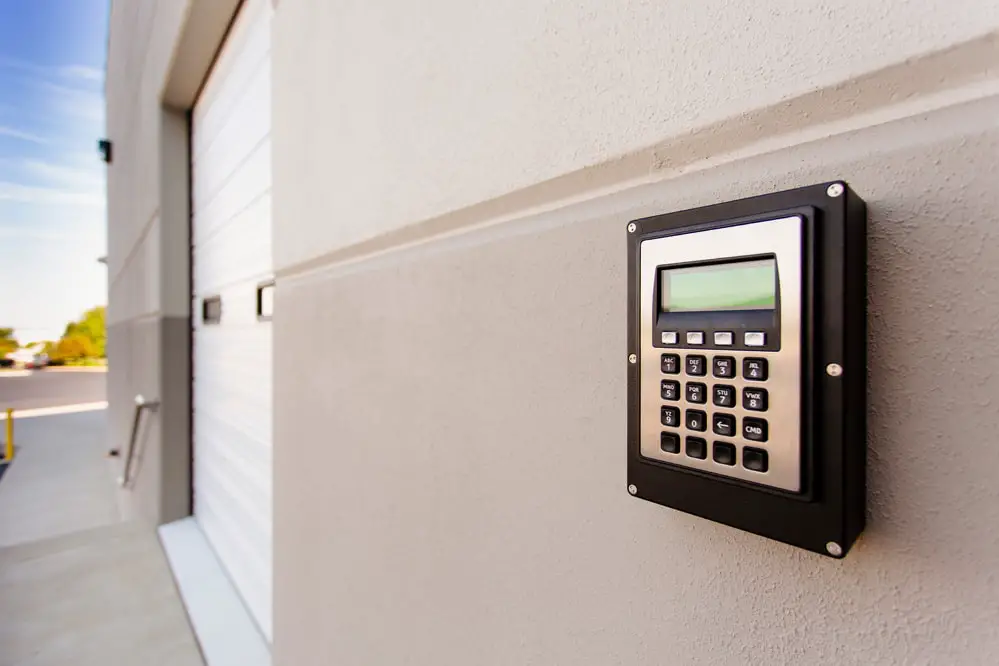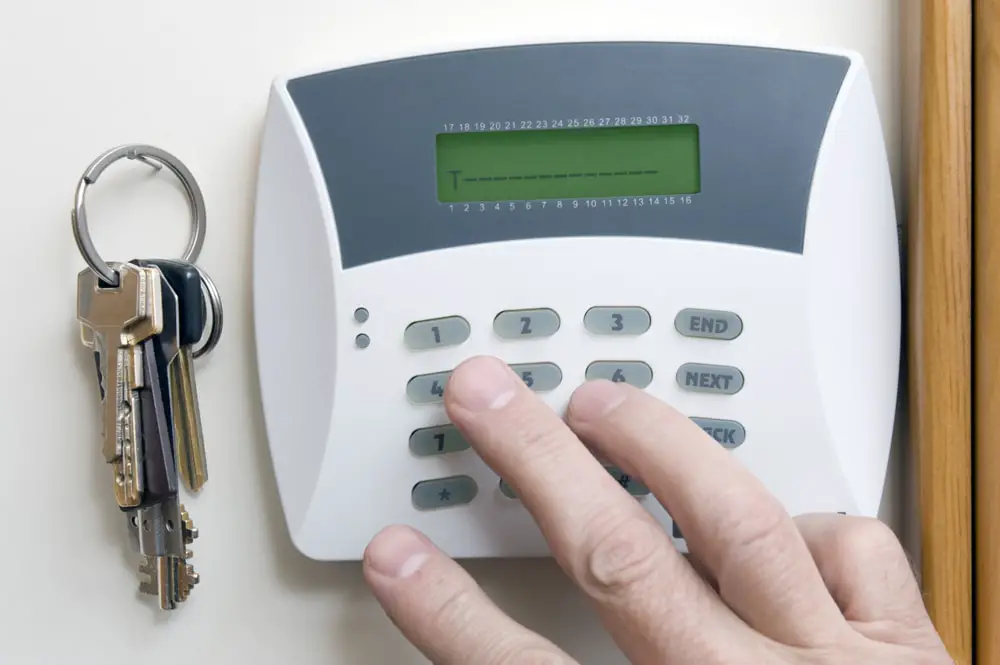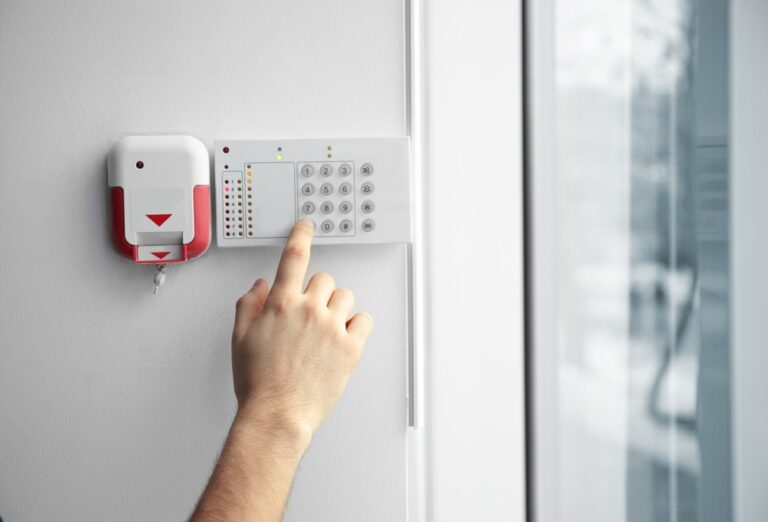Introduction
Can You Use An Alarm System Without Monitoring: Alarm systems are an essential component of home security, providing homeowners with peace of mind and protection against potential threats. Traditionally, alarm systems have been connected to a monitoring service that alerts authorities in the event of a break-in or emergency. However, many homeowners wonder if it is possible to use an alarm system without monitoring. This article will explore the options available for using an alarm system without monitoring and the potential benefits and drawbacks of doing so.
One option for using an fire alarm system without monitoring is to rely solely on the audible alarm. In this scenario, the alarm system will still sound if a sensor is triggered, but there will be no automatic notification sent to a monitoring service or authorities. This can be a cost-effective solution for homeowners who want the deterrent effect of an alarm system without the ongoing expense of monitoring fees. However, it is important to note that relying solely on an audible alarm may not be as effective in deterring burglars or alerting authorities in a timely manner.
Another option for using an alarm system without monitoring is to self-monitor the system. This involves setting up notifications to be sent directly to the homeowner’s smartphone or email address when the alarm is triggered. With this approach, the homeowner can still receive real-time alerts and take appropriate action, such as contacting the authorities or checking the security camera footage. Self-monitoring can provide a greater sense of control and flexibility, as homeowners can customize the notifications and response based on their individual needs and preferences.

Can I use alarm without monitoring?
Yes, you can use an alarm without monitoring. Many alarm systems are designed to function as standalone devices, allowing you to set up and use them without the need for professional monitoring services. These self-monitoring alarms are a popular choice for homeowners who prefer to have control over their security system and do not want to pay for monthly monitoring fees.
When you use an alarm without monitoring, you are responsible for monitoring and responding to any alerts or notifications that the system sends. This means that if the alarm is triggered, you will be the one to receive the alert on your smartphone or other connected device. You can then take appropriate action, such as contacting the authorities or checking on your property, depending on the situation.
Using an alarm without monitoring can offer several advantages. First, it allows you to save money by avoiding the monthly fees associated with professional monitoring services. This can be particularly beneficial for budget-conscious homeowners or those who prefer to allocate their security budget to other areas.
Additionally, self-monitoring alarms provide you with greater control and flexibility. You can customize the settings and notifications to suit your specific needs and preferences. For example, you can choose to receive alerts for specific events, such as a door being opened or a motion sensor being triggered, while ignoring others that may not be as relevant to you.
However, it is important to note that using an alarm without monitoring also comes with some limitations. Without professional monitoring, you will not have access to certain features and services, such as 24/7 monitoring, emergency response, or remote access to your security system. This means that you will need to rely on yourself or trusted individuals to handle any security incidents or emergencies that may arise.
Can I use DSC alarm system without monitoring?
Yes, you can use a DSC alarm system without monitoring. DSC, which stands for Digital Security Controls, is a popular brand of alarm systems that offers a range of features and options for home security. While monitoring services can provide an added layer of protection and peace of mind, they are not necessary for the basic functioning of a DSC alarm system.
When you install a DSC alarm system, you have the option to connect it to a monitoring service or use it as a standalone system. Without monitoring, the alarm system will still function as a local alarm, meaning it will sound an audible alarm when triggered. This can be useful for alerting you and your neighbors to a potential break-in or other security breach.
Using a DSC alarm system without monitoring can be a cost-effective solution for those who do not want to pay for monthly monitoring fees. However, it’s important to note that without monitoring, you will not have access to certain features and services that a monitoring service can provide.
For example, with monitoring, you can receive notifications on your smartphone or other devices when the alarm is triggered. This can be especially useful if you are away from home and want to be alerted immediately if there is a security breach. Additionally, a monitoring service can contact the authorities on your behalf if the alarm is triggered, ensuring a quick response to any emergency situation.
While monitoring can provide added convenience and peace of mind, it is not a requirement for using a DSC alarm system. Whether or not you choose to use monitoring services will depend on your individual needs and preferences for home security.
What is a unmonitored alarm system?
A unmonitored alarm system is a security system that is not connected to a monitoring service. Unlike monitored alarm systems, which are linked to a central monitoring station that alerts authorities in case of an emergency, unmonitored alarm systems rely solely on audible alarms or notifications sent directly to the homeowner’s smartphone or other devices.
These systems are often more affordable than monitored systems, as they do not require monthly monitoring fees. However, they also lack the added layer of security provided by a monitoring service.
Alarm system
One of the main advantages of unmonitored alarm systems is their flexibility. Homeowners have the freedom to customize their system to meet their specific needs and preferences. They can choose which sensors to install, where to place them, and how to configure the system.
Another advantage of unmonitored alarm systems is that they provide immediate notifications to homeowners in case of a security breach. This allows homeowners to take immediate action, such as contacting the authorities or checking the security footage, to address the situation.
However, it is important to note that unmonitored alarm systems have some limitations. It is solely the responsibility of the homeowner to take action upon receiving a notification. Additionally, unmonitored systems may not be suitable for all homeowners, especially those who prefer the peace of mind provided by a professional monitoring service.
What are the disadvantages of unmonitored alarm systems?
These systems warn homeowners and businesses of potential break-ins or emergencies, but they lack expert monitoring. This means a monitoring center or security guard does not immediately respond to an alarm.
Lack of immediate response is a major drawback of unmonitored alarm systems. The homeowner or company owner must respond to the alarm without expert monitoring. This can be troublesome if the person is unavailable or unable to act quickly. Before taking action, a break-in perpetrator may inflict substantial damage or steal expensive objects.
Poor emergency service communication is another drawback. Unmonitored alarm systems cannot contact police or fire departments. The alarm may sound in a fire or medical emergency, but aid may not arrive immediately. This response delay could endanger lives.
Monitored alarm systems dissuade more than unmonitored ones. Unmonitored systems may not prevent break-ins or other crimes as well.
Lastly, unmonitored alarm systems may not send real-time updates or messages. With monitored systems, homeowners and business owners can receive instant alert messages on their cellphones or other devices. This allows immediate action and remote assessment. Without this feature, unmonitored systems may not alert people to possible hazards until they check the premises.
What is the difference between monitored and unmonitored security systems?
Unmonitored and monitored security systems safeguard homes and businesses. Though different, both approaches offer security and peace of mind.
The monitoring station alerts the homeowner or company owner of an alarm. This strategy protects property by monitoring.
However, unmonitored security systems lack central monitoring. Instead, it alerts the homeowner or company owner to alarms. This system deters criminals and alerts the owner, but has less security than a monitored system. Without an alarm monitoring station, the owner must act in emergencies.
A monitored security system gives peace of mind. You can feel safer at home or away knowing someone is continuously checking your property. Since the monitoring station can quickly alert authorities, monitored systems speed emergency response. In medical or fire emergencies, seconds count.
Budget shoppers may save with unmonitored security. The system is cheaper upfront because there is no monthly monitoring fee. Some like unmonitored systems for alarms and warnings.
Home alarms without monitoring can help. Less expensive because there are no monthly monitoring expenses. On a budget or who prefers other spending may benefit.
A homeowner is powerful and independent. Alarm systems without monitoring let users customize security. Just add or remove sensors, alter alarms, and connect smart home devices. This flexibility lets homeowners customize their security.
Are there any limitations or drawbacks to using an alarm system without monitoring?
Using an alarm system without monitoring does have some limitations and drawbacks to consider. One of the main limitations is that without monitoring, you are solely responsible for responding to any alarms or alerts. Additionally, without monitoring, there is no direct connection to emergency services, so in the event of a break-in or emergency, you would need to contact the authorities yourself.
Another drawback of using an alarm system without monitoring is the lack of professional expertise and guidance. With a monitored system, trained professionals are available to assess the situation and provide guidance on the appropriate course of action.
It’s also important to note that without monitoring, you may not have access to certain features and services that come with a monitored system. For example, many monitored systems offer remote access and control, allowing you to arm or disarm your system from anywhere. Without monitoring, you may not have this convenience and flexibility.
How does an alarm system without monitoring differ from one with monitoring?
An alarm system without monitoring refers to a security system that is not connected to a professional monitoring service. Instead, it relies on the homeowner or user to respond to any alerts or notifications. This type of system is typically self-monitored, meaning the user is responsible for monitoring and managing the system themselves.
One key difference between an alarm system without monitoring and one with monitoring is the level of response and support. With a monitored system, alerts are sent to a professional monitoring center where trained operators can quickly assess the situation and take appropriate action. They can contact emergency services, notify the homeowner, or dispatch security personnel if necessary. In contrast, with a self-monitored system, the user is solely responsible for responding to alerts and taking action.
Another difference is the availability of additional features and services. Monitored alarm systems often offer additional services such as video surveillance, remote access, and integration with other smart home devices. These features provide enhanced security and convenience. On the other hand, an alarm system without monitoring may have limited capabilities and may not offer the same level of integration or advanced features.
Can you still receive notifications or alerts with an alarm system without monitoring?
Yes, it is possible to receive notifications or alerts with an alarm system that does not have professional monitoring. While a monitored alarm system typically sends alerts to a central monitoring station, an alarm system without monitoring can still send notifications directly to the homeowner’s smartphone or other devices.
With advancements in technology, many alarm systems now offer self-monitoring capabilities.
Additionally, some alarm systems without monitoring can also send alerts to trusted contacts or neighbors. This can be especially useful if the homeowner is away or unable to respond to the alert immediately. By notifying trusted individuals, they can check on the property or contact the authorities if necessary.
What are some alternative options for monitoring an alarm system without professional monitoring services?
When it comes to monitoring an alarm system without professional monitoring services, there are several alternative options available. One option is self-monitoring, where the homeowner takes on the responsibility of monitoring their own alarm system. With self-monitoring, the homeowner can still receive notifications and alerts in real-time, allowing them to take immediate action if there is a security breach or emergency.
Another alternative option for monitoring an alarm system without professional monitoring services is through the use of a trusted neighbor or friend. This involves setting up a system where the neighbor or friend is notified in the event of an alarm activation. They can then check on the property and contact the homeowner or authorities if necessary. This option can be particularly useful for individuals who live in close-knit communities or have a strong support network.

Conclusion
Monitoring services enhance security and peace of mind, but they are not necessary for alarm system operation. Many alarm systems allow homeowners to receive alerts and notifications on their smartphones or other devices with self-monitoring. This lets people call the police or check their property in an emergency.
On a budget, a home alarm system without monitoring can be cheaper. Monitoring services have monthly fees, which might mount up. While an alarm system deters, homeowners can save money by self-monitoring. Some insurers give discounts on house insurance for having an alarm system, whether monitored or not.
However, alarm systems without monitoring have limitations. Without a monitoring service, homeowners must act on alarms.
An alarm system without monitoring is possible, but weigh the pros and cons before choosing. Consider money, availability, and desired security. The goal is to find a solution that gives homeowners and their property the protection and peace of mind they want.

